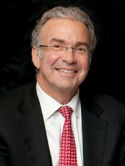Recombinant human granulocyte-macrophage colony-stimulating factor as an adjunct to conventional-dose ifosfamide-based chemotherapy for patients with advanced or relapsed germ cell tumors: A randomized trial Journal Article
| Authors: | Bajorin, D. F.; Nichols, C. R.; Schmoll, H. J.; Kantoff, P. W.; Bokemeyer, C.; Demetri, G. D.; Einhorn, L. H.; Bosl, G. J. |
| Article Title: | Recombinant human granulocyte-macrophage colony-stimulating factor as an adjunct to conventional-dose ifosfamide-based chemotherapy for patients with advanced or relapsed germ cell tumors: A randomized trial |
| Abstract: | Purpose: Ifosfamide-containing therapy with cisplatin plus either etoposide (VIP) or vinblastine (VeIP) can cure of patients with relapsed germ cell tumors (GCTs), but results in substantial myelotoxicity. This study sought to assess the impact of recombinant human granulocyte macrophage colony-stimulating factor (rhGM-CSF) on the severity of neutropenia and incidence of infectious complications in patients who receive ifosfamide-based chemotherapy for GCT. Patients and Methods: One hundred and four assessable GCT patients from 20 centers were randomized to receive rhGM-CSF with either cycles 1 and 2 or cycles 3 and 4 of chemotherapy. Standard doses of VIP or VeIP were used. Efficacy data were analyzed using a parallel design for cycles 1 and 2 before the crossover. Results: Fewer clinically relevant infections occurred in rhGM-CSF patients (13 of 55, 24%) versus observation patients (22 of 49, 45%) in cycle 1 (P = .01). Decreases were observed in infections during neutropenia (22% v 43%, P = .03), infections requiring intravenous antibiotics (20% v 43%, P = .01), and any infection irrespective of severity (29% v 55%, P = .01) in cycle 1. However, there were no significant differences among the treatment arms in cycle 2 in the proportion of clinically relevant infections (P = .23), infections associated with neutropenia (P = .11), infections requiring antibiotics (P = .22), or any infection (P = .65). rhGM-CSF was discontinued in 14% of cycles because of toxicity related to the growth factor. Conclusion: rhGM-CSF reduced the incidence of infections in the first cycle of chemotherapy, but no benefit beyond the initial chemotherapy cycle was evident. Based on the limited clinical impact and the high incidence of rhGM-CSF-related toxicity that required growth factor discontinuation, the routine administration of rhGM-CSF to prevent neutropenia and infection after ifosfamide-based chemotherapy for GCT patients is not recommended. |
| Keywords: | cisplatin; chemotherapy; etoposide; risk; salvage; therapy; plus; cancer-center experience; induced myelosuppression |
| Journal Title: | Journal of Clinical Oncology |
| Volume: | 13 |
| Issue: | 1 |
| ISSN: | 0732-183X |
| Publisher: | American Society of Clinical Oncology |
| Date Published: | 1995-01-01 |
| Start Page: | 79 |
| End Page: | 86 |
| Language: | English |
| ACCESSION: | WOS:A1995QA32500013 |
| DOI: | 10.1200/jco.1995.13.1.79 |
| PROVIDER: | wos |
| PUBMED: | 7799046 |
| Notes: | Article -- Source: Wos |
Altmetric
Citation Impact
BMJ Impact Analytics
Related MSK Work





